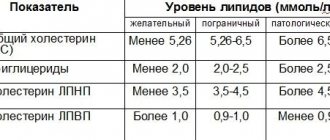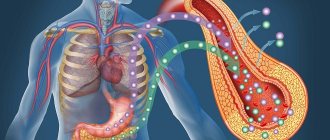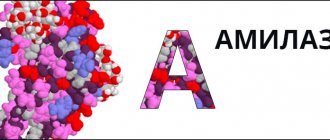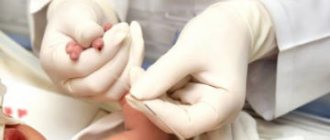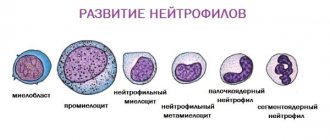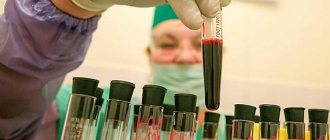The reasons for changes in acetone levels in urine can be very diverse. After all, it is a product of the body’s vital activity. And its level is influenced by many factors. The level of acetone can always be monitored at home using easy-to-use test strips. An increase in acetone in a child’s urine may be a signal of serious illnesses that will require examination by a specialist. Also, acetone in urine increases in pregnant women, as a result of dehydration due to toxicosis and frequent vomiting. Acetone in the urine is a constant companion of diabetes mellitus, namely, the stage of decompensation. For people suffering from diabetes, acetone will serve as a direct ticket to hospital treatment.
What is acetone?
By the same acetone bodies that are determined during a urine test, doctors mean acetone itself, acetoacetic and beta-hydroxybutyric acid. All these substances are products of incomplete oxidation of fats and proteins, and are tightly bound together.
An increase in acetone bodies can be observed in many conditions, that is, not only in diseases. For example, fasting, dieting with an imbalance of fats, proteins and carbohydrates, as well as strong physical activity. Therefore, when you see it in your urine test, you should not immediately panic. This may be due to a nutritional imbalance, which can be easily corrected. Also, changes in this indicator can be observed immediately after anesthesia.
Poisoning with certain substances (phosphorus, lead, atropine) can, in turn, also affect the level of acetone in the urine.
Acetone in the urine (acetonuria) can appear in diseases of the digestive tract, such as tumors and narrowing of the esophagus, cachexia, severe anemia.
Smell of acetone from the mouth – ketoacidosis
Patients with diabetes can develop a life-threatening complication called ketoacidosis. This is a complex of acid-base disorders in which ketones appear in the urine and blood. This condition occurs as a result of insulin deficiency. Ketone bodies are most often produced in patients with type I diabetes, but may be present in test results in patients with other types of diabetes.
Sour breath is not the only symptom of this type of metabolic acidosis. Dehydration, glucose in the urine, electrolyte disturbances, disturbances of consciousness, feelings of weakness, drowsiness, vomiting, nausea, abdominal pain, chest pain, headache, dizziness, flushing, rapid heartbeat and rapid breathing are also observed. Without treatment, acidosis can cause coma.
In addition to diabetes, ketoacidosis and therefore acetone breath can cause:
- bacterial, fungal, viral infections, which increase the need for insulin;
- errors in insulin treatment;
- heart attack and stroke;
- pancreatitis.
Acetone in urine in diabetics
The most common case in which an increase in acetone in the blood is observed is diabetes mellitus, especially in moderate and severe forms. This is due to the fact that the body constantly loses carbohydrates, and its own carbohydrates are not enough to completely oxidize proteins and fats.
Acetone in urine in diabetes mellitus signals an increase in acetone bodies in the blood. And this contributes to the development of acidosis, which in the future causes the development of diabetic coma. But, you should not immediately react to an increase in acetone. The body is equipped with special buffer systems that independently equalize the level of substances both in the blood and in the urine. And for the first time, before medical assistance is provided, their actions will be sufficient to prevent serious violations. In any case, acetonuria is an indicator of an imbalance of carbohydrates and insulin in the body.
Therefore, if you find an increase in acetone in the blood or urine in a diabetic, seek qualified medical help.
Urine on acetone
Description Acetonuria (ketonuria) is an increased content of ketone bodies in the urine, which are products of incomplete oxidation of proteins and fats in the body. Ketone bodies include acetone, hydroxybutyric acid, and acetoacetic acid. Until recently, the phenomenon of acetonuria was very rare, but now the situation has changed dramatically, and increasingly, acetone in the urine can be found not only in children, but also in adults. Acetone can be found in the urine of every person, only in very small concentrations. In small quantities (20-50 mg/day) it is constantly excreted by the kidneys. In this case, no treatment is required.
Reasons for the appearance of acetone in urine
In adults, this phenomenon can be caused by a number of reasons:
- The predominance of fatty and protein foods in the diet, when the body does not have the ability to completely break down fats and proteins.
- Lack of food containing carbohydrates. In such cases, it is enough to balance your diet, avoid eating fatty foods, and add foods containing carbohydrates. By following a simple diet that will eliminate all dietary errors, it is quite possible to get rid of acetonuria without resorting to treatment.
- Physical exercise. If the reasons lie in intense sports activities, you need to contact a specialist and adjust the load that would suit the body.
- A strict diet or prolonged fasting. In this case, you will have to give up fasting and contact a nutritionist so that he can select the optimal diet and products necessary to restore the normal state of the body.
- Diabetes mellitus type I or a depleted state of the pancreas with long-term diabetes mellitus type II. In this state, the body does not have enough carbohydrates to completely oxidize fats and proteins. Depending on the reasons that provoked the appearance of acetone in the urine in diabetes mellitus, the tactics for managing the patient are chosen. If the reason lies in simply following a strict diet (although this is unreasonable behavior for diabetics), then such acetonuria will go away within a few days after normalizing the diet or adding foods containing carbohydrates to the diet. But when a patient with diabetes does not reduce the level of acetone in the urine even after taking carbohydrates and simultaneous insulin injections, it is worth seriously thinking about metabolic disorders. In such cases, the prognosis is unfavorable and is fraught with diabetic coma if urgent measures are not taken.
- Cerebral coma.
- Heat.
- Alcohol intoxication.
- Precomatose state.
- Hyperinsulinism (attacks of hypoglycemia caused by increased insulin levels).
- A number of serious diseases - stomach cancer, stenosis (narrowing of the opening or lumen) of the pylorus of the stomach or esophagus, severe anemia, cachexia (severe exhaustion of the body) - are almost always accompanied by acetonuria.
- Uncontrollable vomiting in pregnant women.
- Eclampsia (severe toxicosis in late pregnancy).
- Infectious diseases.
- Anesthesia, especially chloroform. In patients in the postoperative period, acetone may appear in the urine.
- Various poisonings, for example, with phosphorus, lead, atropine and many other chemical compounds.
- Thyrotoxicosis (increased levels of thyroid hormones).
- Consequence of injuries affecting the central nervous system.
If acetone in the urine appears due to pathological processes in the body, treatment is prescribed by a doctor who observes the patient.
In children, acetone appears in the urine as a result of malfunctions of the pancreas, which can occur for many reasons. Until the age of 12, the pancreas develops. At this time, she simply may not be able to cope with all the blows that fall on her. When the pancreas is suppressed, significantly fewer enzymes are produced than necessary. The main causes of childhood acetonuria:
- Errors in nutrition. Overeating, fatty foods, products containing chemical flavors, preservatives and dyes are an incomplete list of child nutrition disorders that can lead to the appearance of acetone in a child’s urine.
- Increased excitability or stress (which parents mistake for simple whims).
- Exercise stress.
- Overwork. In an effort to make a child prodigy, parents enroll their child in numerous sections and clubs. They forget that a child may simply be tired.
- Worms, diathesis, dysentery. Only a doctor can help here by prescribing appropriate treatment.
- Uncontrolled use of antibiotics.
- Heat.
- Hypothermia.
During pregnancy, the appearance of acetone in the urine is somewhat of a mysterious phenomenon. No one can yet say the exact cause of acetonuria in pregnant women, but experts still identify several factors that contribute to the occurrence of this syndrome:
- Negative environmental influences.
- The expectant mother has great psychological stress not only in the present, but also in the past.
- Decreased immunity.
- The presence of chemicals in consumed products - dyes, preservatives and flavors.
- Toxicosis, in which the main symptom is constant vomiting. In this case, it is simply necessary to restore the water balance in the body - drink water in small sips or even inject liquid intravenously. With proper treatment, acetone disappears from urine within two days or even earlier.
In any case, it is necessary to identify the cause of acetonuria in a pregnant woman as quickly as possible and eliminate it so that this condition does not affect the health of the unborn child.
You can suspect “excess” acetone in the urine if you have the following symptoms:
- unpleasant odor when urinating;
- smell of acetone from the mouth;
- mental depression;
- lethargy of the patient.
Children may have slightly different symptoms:
- Loss of appetite. A child may even refuse water because he constantly feels nauseous.
- The baby complains of weakness.
- Headache.
- Excitability, which gives way to drowsiness and lethargy.
- Cramping pain in the abdomen, most often in the navel area.
- Nausea.
- Vomiting after every meal.
- Temperature increase.
- Paleness, dry skin, unhealthy blush.
- Dry tongue.
- The smell of acetone from the mouth, from vomit and from urine.
Urine test for acetone
To clarify the level of acetone, the doctor writes out a referral for a routine clinical urine test, where it is determined along with other indicators. Urine collection for analysis is carried out according to the usual rules: after hygiene procedures, morning urine is collected in a dry and clean container. Normally, there are so few ketone bodies (acetone) in urine that they cannot be detected by conventional laboratory methods. Therefore, it is believed that acetone in urine should not be normal. If acetone is detected in the urine, its amount is indicated in the analysis by pluses (“crosses”). One plus means that the urine reaction to acetone is weakly positive. Two or three pluses – a positive reaction. Four pluses (“four crosses”) – a strongly positive reaction; the situation requires immediate medical attention.
The smell of acetone from the mouth - diagnosis and treatment
Bad breath can be the result of negligence in oral hygiene. However, it can also indicate serious health problems. The smell of acetone on the breath is sometimes confused with the smell of alcohol. This may indicate uncontrolled diabetes and a serious complication of ketoacidosis.
To make an accurate diagnosis and prescribe effective treatment, the endocrinologist will check what medications the patient is taking and whether he is abusing alcohol. Women should be excluded from pregnancy.
Diagnosis of acidosis is based on the results of laboratory tests, in which it can be stated:
- decreased arterial blood levels;
- ketonuria – the presence of ketones in the urine;
- hyperglycemia;
- electrolyte disturbances;
- glucosuria – the presence of glucose in the urine.
Treatment of ketoacidosis is based on hydration of the patient, insulin therapy, correction of water-electrolyte and acid-base disorders.
ONLINE REGISTRATION at the DIANA clinic
You can sign up by calling the toll-free phone number 8-800-707-15-60 or filling out the contact form. In this case, we will contact you ourselves.
If you find an error, please select a piece of text and press Ctrl+Enter
Acetone smell from child's mouth
Children's breath smells like acetone most often due to type I diabetes. The disease develops slowly and insidiously, so parents often do not know that their child is sick. In addition, young patients often experience weight loss, excessive thirst, weakness, and pollakiuria.
This type of odor can also occur when a child doesn't drink enough. Sometimes parents report an ammonia odor from their child's mouth during an infection such as pharyngitis.
A strange smell from the mouth should prompt parents to contact a pediatrician, who will prescribe the necessary examinations.
